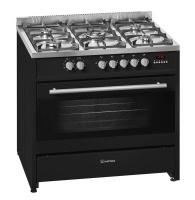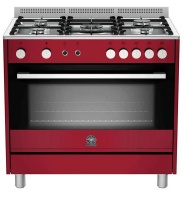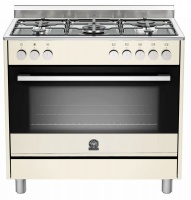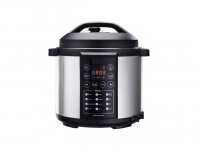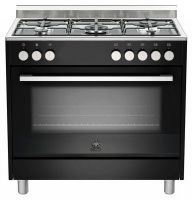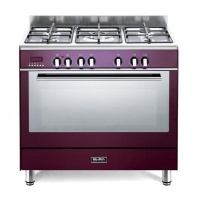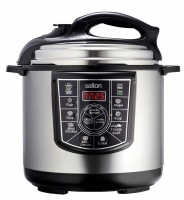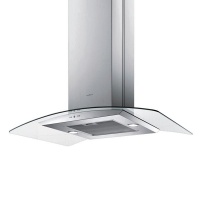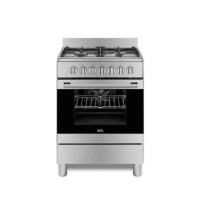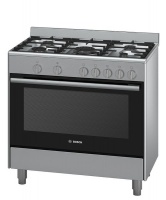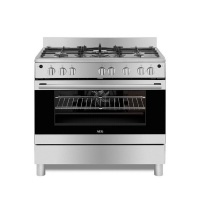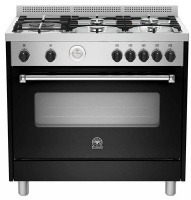Gas Stoves
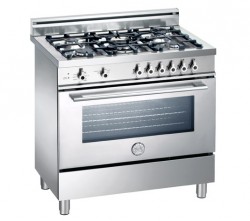
Gas Stove History
Although they remained isolated experiments the first gas stoves were already develop as early as the 1820s. With the gas stove patented in Northampton England, James Sharp opened a gas stove factory in 1836. Due to the slow growth of the gas pipe network the gas stove only became a commercial success in the 1880. The first gas stoves were bulky and awkward but soon became better suited to the rest of the kitchen furniture when the oven was incorporated into the base of the gas oven and the bulky size was reduced. The gas Stoves where enamelled in 1910 for easy cleaning.
With the quick response time of a gas stove when changing temperatures it is preferred by most professional chefs.
Igniting Gas Stoves
Gas stoves have the notorious reputation of being dangerous and causing devastating kitchen disasters. Earlier gas stoves use to be manually lit with matches and if the gas was left on by accident it will fill the oven and eventually the room, a simple spark could ignite the gas and trigger a vicious explosion. Today there are two different basic types of ignition sources, the standing pilot and electric both with their own safety mechanisms.
The advantage of the standing pilot system is that it is simple to use and completely independent of any kind of power source. Manufactures have installed a safety valve which depends on a thermocouple, when the flame goes out the thermocouple cools and sends a signal for the gas velve to close cutting the gas supply.
Most modern gas stoves come with electronic ignitions which lights the surface burners with an electric spark. The electric auto reignition has a safety feature which automatically reignites the flame if the flame goes out if the gas is still on.
Read more about gas stoves on Wikipidia.


